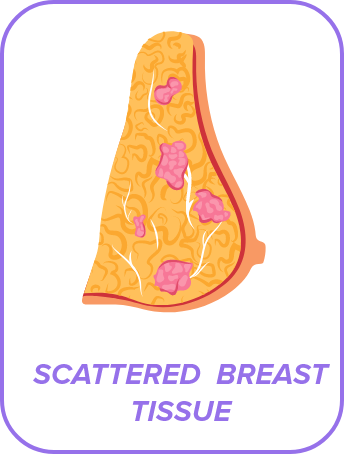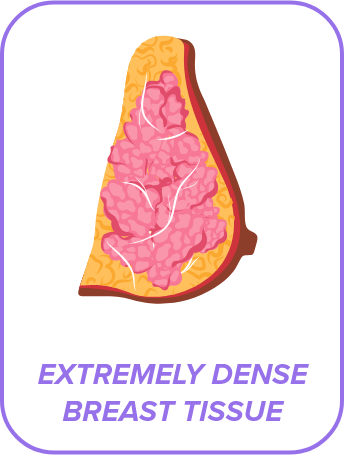What kind of bras should I be wearing?
Bras—you either love them or hate them. Despite myths out there, there is no credible research linking wearing a bra (or wearing any specific type of bra) to negative impacts on breast health. If you do choose to wear a bra, all that matters is that it’s properly fitting, as this ensures good support and can reduce strain on your back and shoulders. Ultimately, it’s a personal choice based on comfort and style preferences.
How often should I go to the doctor?
Seeing your doctor at least once every year ensures your general wellness and prevents future health concerns. Whether it’s your Primary Care Physician (PCP) or your gynecologist, scheduling a yearly visit gives you an opportunity to ask questions, refill any needed prescriptions, and know that you’re on track for a healthy year ahead.
It’s normal to have anxiety about doctor visits and annual check-ups, especially if you’ve felt dismissed by your doctor before. But you deserve to have a full picture of your health, so find a doctor that works for YOU and don’t be afraid to ask questions.
What do I do if my doctor dismisses my concerns or questions?
Too often young Black women are dismissed by doctors. It’s important to remember—you’re the CEO of your own health. If your doctor won’t listen, you can share any of the facts on this site to back you up. But you should also know that you can always fire your doctor and hire a new one if you feel like they aren’t listening to you, answering your questions, or meeting your needs. Check out our
Health CEO Guide for more info.
How do I do a self exam? How often should I do a self exam?
Check out our
Self Exam page for everything you need to get to know your gurls! You can also visit our partner orgs, like
titcheck.org and
knowyourlemons.org, for extra tips, tricks, and visuals!
How does what I eat or drink affect Black Breast Health?
Fueling your body is key to your overall health and wellness. A healthy diet can even support cellular function and can help reduce your risk of breast cancer. The biggest takeaway? Pick fruits and vegetables as often as you can. Here’s an easy trick—try to make sure that you have at least three colors on your plate at each meal. Watch our
Pink Table Talk episode all about nutrition here.
Drinking alcohol increases your risk of breast cancer. We know, though, that it isn’t realistic for every young woman to stop drinking completely. Try having one fewer drink this week–your gurls will thank you!
What should I do if I’m at high risk for breast cancer?
If you know you’re at high risk for breast cancer based on your HERstory (family health history), the first thing you should do is share your HERstory with your doctor. Check out our
HERstory page to download a worksheet that can help you gather information to share with your doctor. The more your doctor knows, the better they can determine your specific screening plan. In this conversation, make sure to ask your doctor if genetic testing is an option for you.
In addition to sharing your family health history with your healthcare provider, you can also check out our partner,
The WISDOM Study. The WISDOM Study is working to personalize breast cancer screening approaches by offering personalized risk assessments and recommendations. When you enroll in the WISDOM Study, you get access to free genetic testing, screening recommendations, and a Breast Health Decisions tool that helps walk through your risk factors and ways that you could try to reduce your risk. Learn more about the WISDOM Study on our
Pink Table Talk episode.
What beauty products should I be using to protect my breast health?
Certain beauty products marketed to Black women, like many hair dyes, aren’t good for your health and can increase your risk of breast cancer. Breast Cancer Prevention Partners’
Black Beauty Project is a database where you can search for non-toxic beauty products by name, brand, or product.
What are dense breasts?
Did you know that young women have dense breasts? No really, your boobs are the densest they will ever be right now. More glands and fibrous tissue = denser breasts. Dense breasts are normal and common, especially for Black women.
But dense breasts can make screening difficult. If you feel something abnormal or strange during a breast self-exam, talk to your doctor about your breast density and the best screening options for you.





